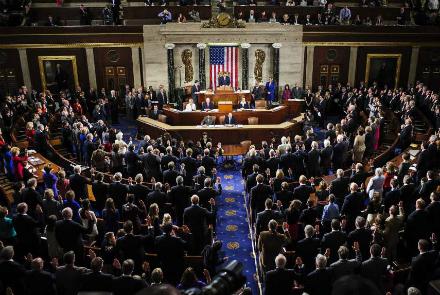The US Senate on Wednesday turned back an attempt to repeal the current authority for the US military force in the 16-year-old Afghanistan war and the fight in Iraq.
Kentucky Republican Sen. Rand Paul, an anti-war crusader, had offered an amendment to the 2018 National Defense Authorization Act (NDAA) to repeal war authority granted in 2001 and 2002, reported CNBC.
He said the current war authorizations were outdated and that Congress needed to "grab power back" from the executive branch, which he said has been using the war authorizations for "unauthorized, unconstitutional and undeclared war."
Paul had threatened to essentially slow down the legislative process for passing the fiscal 2018 NDAA unless there was a floor debate on the war authorizations.
The NDAA sets forth the Pentagon's budget and major programs for the next fiscal year, which starts in October.
But by a 61-36 vote, the Senate voted to table the Paul amendment - in effect killing - the attempt to repeal the war authorization, CNBC reported.
Democrat Sen. Jack Reed, spoke out against the Paul amendment and said voting for it would have had "practical and almost immediate consequences" to US service members in the field, allies as well as emboldened adversaries.
Similarly, Republican Sen. John McCain, the Senate Armed Services Committee chairman, argued against the Paul amendment and said it wasn't necessary to rush the issue to the floor.
"Haven't we had enough of bringing things to the floor without hearings, without amendments, without debate," McCain said.
"I'm confident that an overwhelming bipartisan majority of my colleagues would agree to approve the use of military force against the vicious, brutal enemy we face in ISIS (Daesh) and associated forces."
McCain also argued that repealing the 2001 and 2002 war authorizations without simultaneously passing a new one "would be premature, would be irresponsible and it would threaten US national security."
The AUMF, or Authorization for Use of Military Force, was first used in 2001 by former president George W. Bush when the US deployed forces to Afghanistan.
If the Paul amendment had prevailed, though, it could have forced US President Donald Trump to wind down ongoing military operations against the Taliban and terrorist groups in Afghanistan, as well as the fight against Daesh in Afghanistan, Iraq, Syria and other countries.
"After 16 years, it's difficult to determine the purpose in Afghanistan," Paul said during the debate.
The Kentucky senator went on to say the U.S. also is involved in wars in at least six other places, including Yemen but as of yet there's been no vote in Congress to authorize it. He also cited the US military involvement in wars in Somalia and Libya, reported CNBC.
"These wars are costing trillions of dollars," Paul said.
"I think it's time to start thinking about the problems we have here at home. It's time to think about the $20 trillion debt we've got."
Also, Paul said "a $150 billion tab" for hurricane damage in Texas is another domestic priority rather than spending money on the undeclared wars abroad.


